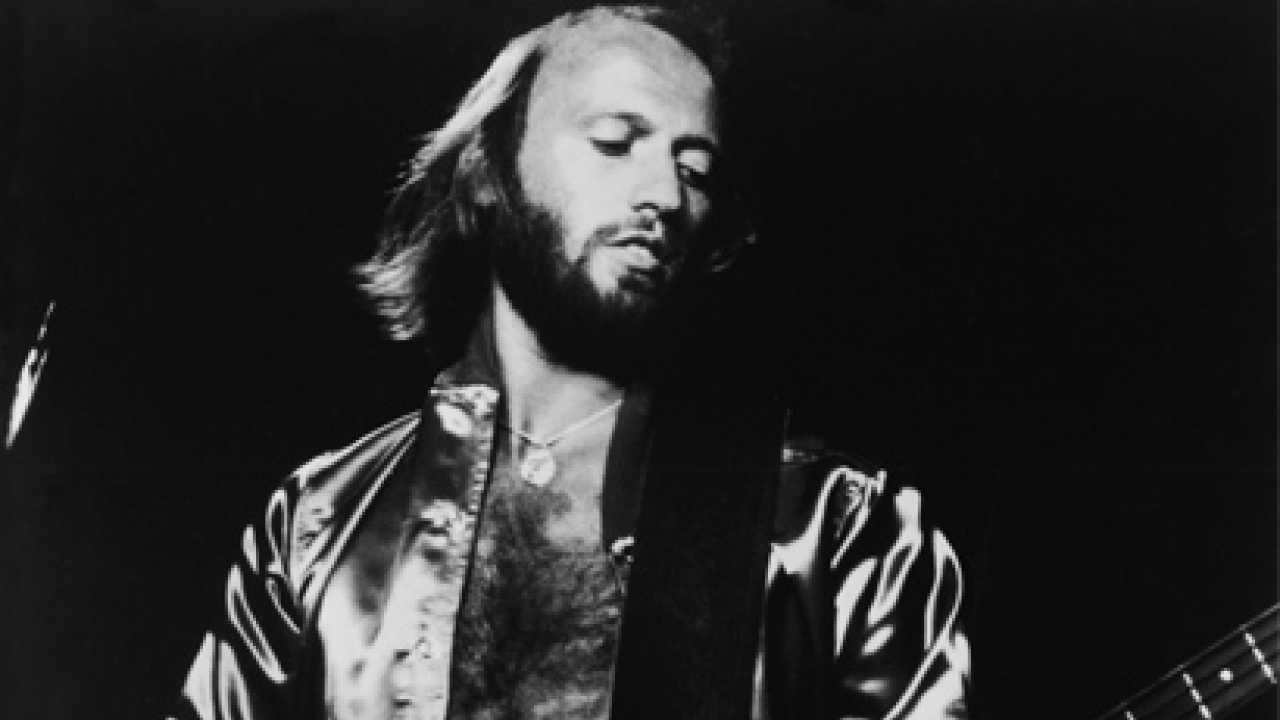
Maurice Gibb: The Quiet Glue of the Bee Gees
On January 12, 2003, the music world was stunned into silence by the news of Maurice Gibb’s unexpected death in Miami at the age of 53. Maurice Gibb—affectionately known as “Mo” to those close to him—was a foundational member of the Bee Gees, the legendary trio that shaped pop and disco music for decades. His passing was not only a shock to legions of fans worldwide but also a heartbreaking loss for his family. After collapsing at his Florida home, Maurice was rushed to Mount Sinai Medical Center, suffering cardiac arrest following complications from urgent abdominal surgery. Despite initial signs of improvement, his condition worsened, and he passed away, surrounded by his devoted wife Yvonne, their two children, and his twin brother, Robin Gibb, who had flown in from the United Kingdom to be by his side.
The Gibb family released a heartfelt statement describing Maurice as a man whose “love, enthusiasm, and energy for life remain an inspiration.” But the grief within the family was profound.
“They’re totally destroyed,”
revealed a close family friend.
“They were always a very close family, and this has just shattered them.”
The loss of Maurice was not simply the death of a musician; it was the breaking of the last unspoken bond in a tightly knit family that had shared decades of triumphs and tragedies.
Born in Britain but raised in Brisbane, Australia, Maurice, along with his brothers Robin and Barry, began their musical journey as children in the late 1950s. Initially performing in small venues, their talents quickly pushed them to larger stages, captivating audiences with their harmonies and relentless drive. A longtime family friend fondly recalled
“bringing the boys—still barely teenagers—into major shows with acts like Chubby Checker. Suddenly they were playing to 20,000 people at a time.”
This early introduction to large audiences set the stage for what would become an unprecedented career.
The Bee Gees’ evolution mirrored pop music’s own transformation, shifting from harmony-rich ballads in the 1960s to a disco-fueled explosion in the 1970s. Their soundtrack for Saturday Night Fever was a cultural phenomenon, selling over 30 million copies worldwide and solidifying their status as global icons. Maurice was the backbone of this triumphant soundscape—handling bass, keyboards, and arrangements with a skill that provided a steady rhythm beneath their soaring falsettos and intricate vocal harmonies. His signature fedora and good-natured humor became emblematic of the group’s unique character. As one music historian noted,
“Maurice’s musical versatility and easygoing presence kept the Bee Gees grounded, even when their fame soared higher than most acts of their time.”
Yet Maurice’s life was not without its dark chapters. The 1980s brought personal struggles, including a battle with alcoholism and the dissolution of his first marriage. But by the 1990s, Maurice had rediscovered peace and stability, building a loving family with Yvonne and their children. Friends and relatives often remarked upon Maurice’s resilience and inherent warmth, emphasizing that he was truly the “glue” holding the brothers together during challenging periods.
“Through everything—losses, addiction, pressure—Maurice was the steady, comforting presence,”
recalled a close confidant.
“His strength kept the family intact.”
The Gibb family had already been tested by tragedy when their youngest brother, Andy Gibb, died suddenly in 1988 at just 30 years old. This devastating loss left a permanent scar on the siblings. Questions about whether the remaining brothers could carry on haunted them, yet the Bee Gees pressed forward, united by their grief and their music. Maurice’s perseverance became a beacon for his brothers and their fans alike.
With Maurice’s death, many believed the Bee Gees had reached the natural conclusion of their storied journey. Commentators quickly compared the loss to the Beatles’ demise following John Lennon’s murder, marking what felt like an irreparable end to an iconic era. As one music commentator observed,
“It’s really hard to comprehend the boys going on. Like the Beatles after Lennon, this feels like the end of an era.”
Plans for a homecoming tour in Australia—a deeply symbolic gesture for the brothers—were abruptly halted by Maurice’s sudden illness, leaving fans with the painful realization that they would never again hear the trio’s distinct voices intertwine in perfect harmony.
Maurice may not have always stood in the spotlight, but those familiar with the inner workings of the Bee Gees understood his irreplaceable role. His multi-instrumental talents, understated songwriting, and warm vocal blend shaped the group’s signature sound. For Barry and Robin, the loss was more than professional; it was deeply personal.
“Maurice wasn’t just my brother and bandmate—he was my lifelong companion,”
Barry once shared.
“Losing him feels like losing a part of myself.”
For the millions of fans who cherished the Bee Gees’ musical legacy, Maurice Gibb’s death signified the silencing of one of the most heartfelt voices of modern music. For Yvonne and their children, it meant losing a husband and father whose love and zest for life illuminated their world. Tributes poured in from across the globe, reflecting the widespread admiration for Maurice’s quiet yet profound impact on popular music.
“Maurice’s melodies and spirit influenced generations,”
said a renowned music critic.
“His passing closes a significant chapter in the history of pop.”
The lasting legacy of the Bee Gees will always include evergreen classics like Saturday Night Fever, Stayin’ Alive, and How Deep Is Your Love. Yet those who truly knew the essence of the group will remember Maurice Gibb as the silent heartbeat of a band that defined an era. It was his artistry, resilience, and unwavering dedication that gave the Bee Gees the enduring strength to soar, leaving an indelible mark on the world’s soundscape.